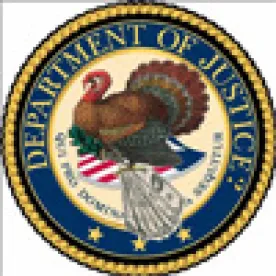After several months of negotiations with the Securities and Exchange Commission (“SEC”) and the Department of Justice (“DOJ”), PTC Inc., a Massachusetts-based global provider of technology platforms and solutions, has agreed to pay $28.2 million in fines and disgorged profits to settle joint criminal and civil actions involving violations of the Foreign Corrupt Practices Act (“FCPA”). Originally disclosed in PTC’s 2015 financial statements, the FCPA investigation and related settlement stem from a series of improper payments made to foreign officials by two of the company’s Chinese subsidiaries between 2006 and 2011 in an effort to obtain lucrative contracts.
The settlement is an important reminder to U.S. companies that they need to be vigilant about their FCPA compliance, including keeping a watchful eye on their foreign subsidiaries.
The FCPA, which is part of the greater Securities Exchange Act of 1934 (“Exchange Act”), contains two primary sets of provisions: the anti-bribery provisions and accounting provisions. The FCPA’s anti-bribery provisions make it unlawful to corruptly offer anything of value, either directly or indirectly, to a foreign official, in an effort to obtain or retain business The FCPA’s accounting provisions, which are primarily directed at “issuers” (i.e. companies that have a class of securities registered or are required to file periodic reports with the SEC under the Exchange Act), contain a host of books and records and internal controls prescriptions. Because these records tend to include those of its consolidated subsidiaries and affiliates, an issuer’s responsibility extends to ensuring that all subsidiaries or affiliates under its control, including foreign subsidiaries and joint ventures, comply with the accounting provisions. While the full terms of the SEC’s order regarding the settled administrative proceeding are available for review on the SEC’s website, the SEC issued a press release this morning, highlighting the following areas of improper conduct:
-
The two subsidiaries provided improper travel and entertainment benefits to foreign officials who worked for state-owned enterprises (“SOEs”);
-
PTC profited from contracts with the state-owned entities whose officials received the improper benefits;
-
Sightseeing and tourist activities that lacked any business purpose were arranged for the officials after one-day visits to PTC’s corporate headquarters in Massachusetts;
-
Travel destinations for the sightseeing and tourist activities included such popular U.S. destinations as New York, Las Vegas, Los Angeles, and Honolulu;
-
Foreign officials were compensated directly and indirectly via third-party agents for the sightseeing and tourist activities;
-
Employees of PTC’s subsidiaries also provided improper gifts to the officials, including such relatively small items as cell phones, iPods, gift cards, wine, and clothing; and
-
The improper benefits were disguised as legitimate commissions or business expenses in the company’s books and records.
The press release identifies several “mitigating” factors that the SEC took into consideration in reaching its final settlement determination, including PTC’s voluntary disclosure of the improper conduct and its remedial steps. PTC’s own press release identified those actions including “the termination of the responsible employees and business partners, the establishment of an entirely new leadership team in China, the establishment of a dedicated compliance function, and other enhancements to compliance [its] programs.”
This case serves as a classic reminder of several important aspects of FCPA enforcement activity in recent years. First and foremost, the SEC has historically found that many things can constitute a bribe in violation of the FCPA, including: travel expenses, meals and entertainment expenses, promises of employment, payments or gifts to family members, and charitable contributions. Secondly, the definition of a “foreign official” in the statute includes not just elected politicians, but members of political parties, and candidates for political office, as well as employees of government agencies and departments, public international organizations, and SOEs. Third, the role of third-party agents can trip companies up, as the FCPA prohibits corrupt payments made through third parties. Fourth, proactive compliance efforts can serve to mitigate potentially devastating sanctions.





 />i
/>i
